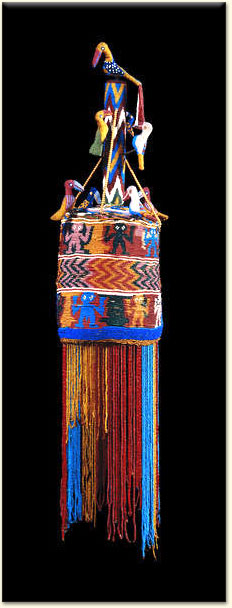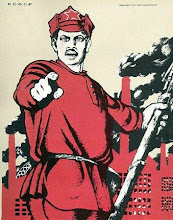Pope Francis has demoted the very conservative Cardinal Burke. Some Catholic blogs think that this will be bad for Francis, because Burke, who has said that the Church is "rudderless" under Pope Francis, will be free to speak his mind on everything under the sun.
However, I see it as an instantiation of the old adage to keep one's friends close... and one's enemies closer.
If Francis is not afraid to demote, he will not be afraid to inflict further penalty upon the recalcitrant bishop.
We read:
http://www.religionnews.com/2014/11/10/pope-francis-sidelines-probably-cant-silence-cardinal-raymond-burke-analysis/
VATICAN CITY (RNS)
In demoting American Cardinal Raymond Burke from his powerful perch at the Vatican, Pope Francis has sidelined an outspoken conservative agitator — for now.And this reminds me of the parable of the three talents (a type of money), about which I very recently wrote:
The pope moved the feisty former archbishop of St. Louis from his role as head of the Vatican’s highest court to the largely ceremonial position of patron of the Knights of Malta on Saturday (Nov. 8).
Francis has effectively exiled one of his loudest critics, but Burke’s supporters — and his opponents — warn that his position at the Catholic charity may actually give him more freedom to exercise greater influence and even rally opposition to papal reforms.
In other words, the stunning demotion may remake Burke into St. Raymond the Martyr, the patron saint of Catholic conservatives.
“His position as patron of the Knights of Malta is Rome-based and mostly ceremonial,” wrote Edward Pentin for the conservative National Catholic Register.
“He is nevertheless likely to continue and perhaps even step up his defense of the Church’s teaching in the face of continued efforts to radically alter pastoral practice in the run-up to next year’s second synod on the family.”
Burke is well-known for his uncompromising stance on abortion, homosexuality and the sanctity of marriage, and his passion for doctrine is matched only by his passion for the elegant finery of his office.
Wearing the vibrant red robes of a cardinal for the first time on the day he was appointed by Pope Emeritus Benedict XVI in 2010, he used one word to describe the greatest threat to the church: “secularization.”
During the global bishops’ Synod on the Family held at the Vatican last month, Burke bitterly complained that conservative views were being stifled amid initial signs of a more welcoming approach to gays and lesbians.
But he raised the ante in an interview with Spanish Catholic weekly, Vida Nueva, at the end of October when he made a direct attack on Francis’ leadership.
“At this very critical moment, there is a strong sense that the church is like a ship without a rudder,” Burke said. “Now, it is more important than ever to examine our faith, have a healthy spiritual leader and give powerful witness to the faith.” ...
http://fatherdaughtertalk.blogspot.com/2014/10/the-parable-of-talents_13.html
... The parable in Matthew 25:14-30 tells of a master who was leaving his home to travel, and before going entrusted his property to his servants (property worth 8 talents, where a talent was a large unit of money, as discussed below). One servant receives five talents, the second two talents, and the third one talent, according to their respective abilities.At times I have found it hard to understand why the servant who did not put the money at risk should be punished, for those who had been enriched could also have been impoverished, and we could have lost the principal along with the income.
Returning after a long absence, the master asks his servants for an accounting. The first two servants explain that they have each put their money to work and doubled the value of the property they were entrusted with, and so they are each rewarded...
The third servant, however, has merely hidden his talent in a hole in the ground, and is punished...
The talents are symbols of the Torah for Jesus.
There are at least two ways to approach the Law: put it out into the marketplace, or hide it and bury it away from the sight of other folks.
Apparently in this parable we hear of the Law as a living thing, capable of change. What kind of change, we ask? Well, the answer to that is up to us. The kind of change that the Law experiences will be the result of a negotiation between all the parties involved.
But the important part is the teaching that our present understanding of the Law is not a Credo, not a Catechism, but a living entity which exhibits the characteristics of other living entities. It is not a coin to be hidden under a rock.
I do not say I disagree with Cardinal Burke. However, his reaction thus far seems to be that of a servant who believes the his understanding of the Law must be kept virgin and intact.
He appeals to the Scriptures. Pope Francis appeals to life-lived-as-life, not as life-as-monument.
The word "schism" has been heard.
I am happy that Politics will once again trump Unity, for this is the Time of Discord, and the race of mankind will bleed itself until it comes together in the Harmony of Exhausted Souls.
How may mankind comprehend the Law of the Holy?... except by trials and errors and all those sorrowful streets we know by now so well?
--


















No comments:
Post a Comment